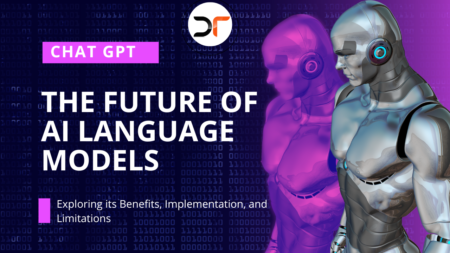The digital age has completely transformed business and consumer relations and engagement in the modern business landscape. Learning the principles of digital marketing has become crucial for companies looking to thrive in this dynamic climate as traditional marketing strategies change. In this thorough book, we will delve into the fundamental ideas and significance of digital marketing, arming you with the information you need to navigate the online environment and produce substantive results successfully.
What exactly is digital marketing?
Digital marketing refers to various online techniques and strategies used to advertise goods, services, or brands on digital platforms and electronic devices. Digital marketing outperforms traditional marketing modes, including engaging with consumers worldwide without relying on print or broadcast media. This multidimensional strategy integrates a variety of fields, each of which contributes to a comprehensive digital marketing plan:
- SEO (search engine optimization): To increase your website’s visibility on SERP pages, SEO entails optimizing its content and architecture. Businesses may increase their online presence and attract organic traffic by selecting the right keywords to target and optimizing both on- and off-page elements.
- Content Marketing : The core of digital marketing is content. Businesses can build authority, inform their audience, and increase engagement by creating high-quality, pertinent, and valuable content. Many types of content exist, such as blog entries, articles, infographics, videos, and more.
- Social media advertising; Social media platforms allow businesses to interact with customers, increase brand recognition, and encourage participation. Paid advertising, community management, and content production are all components of strategic social media marketing.
- Email advertising; Email is still a powerful tool for attracting new clients, keeping existing ones, and increasing conversion rates. Businesses can build a direct line of connection with their audience by sending targeted and customized messaging.
- Pay-Per-Click (PPC) Promotion: PPC advertising entails posting sponsored advertisements on social media sites and search engines. It is a cost-effective method of increasing traffic and conversions because advertisers only pay when consumers click on their adverts.
- Influencer marketing: Businesses can tap into their existing audiences and use their authority for brand marketing by working with influencers and sector experts.
Reasons Why Digital Marketing Is Important
It is impossible to stress the importance of understanding the foundations of digital marketing. Here are some reasons why it is critical for businesses today:
- Accessibility and Global Reach : Digital marketing crosses borders and makes it very simple for companies to reach a worldwide audience. On a global scale, small businesses can compete with giant corporations.
- cost-effectiveness: Digital marketing is a more affordable approach to advertising goods and services than traditional marketing strategies. Different budget ranges can be accommodated using other methods.
- Real-Time Analytics and Insights; Businesses can evaluate the success of ads and marketing campaigns and make data-backed decisions thanks to the real-time data and analytics made available through digital marketing.
- Targeted Engagement: Businesses may increase the likelihood of conversions and engagement by precisely tailoring their communications to the proper audiences.
- Interactivity and Engagement: Through comments, likes, shares, and messages, digital marketing enables direct engagement with the audience. This encourages a sense of belonging and increases brand loyalty.
Understanding the Fundamentals of Digital Marketing
- Establishing a Strong Online Presence: Begin by creating a user-friendly, well-designed website that focuses on your digital marketing initiatives.
– By making your website mobile-friendly, you can guarantee a consistent and more prolonged user experience on all screen sizes.
- Understanding Your Audience:– Carry out in-depth market research to learn about your target audience’s characteristics, tastes, and behavior.
– Create thorough customer personas to inform your content production and marketing initiatives.
- Using Social Media Platforms: – Pick social media channels that are compatible with the tastes and habits of your target market.
– Regularly distribute worthwhile information, interact with your audience, and promote deep connections.
- Leveraging the Power of Content: Create a content schedule that outlines the kinds of material you will produce and the dates on which you will publish it.
– To accommodate varying audience tastes, create a variety of exciting content formats.
- Engaging Through Email Marketing: – Create an email list by providing rewards like free ebooks, access to webinars, or exclusive discounts.
– Segment your email list depending on user behavior and interests to send relevant and focused email campaigns.
- Analysis and revision:
– Use analytics software for digital marketing to monitor KPIs like website traffic, click-through rates, and conversion rates.
– Analyze data insights to spot trends, chances for improvement, and strengths and weaknesses.
Conclusion: Confidently navigating the digital environment
An effective online strategy is built on the principles of digital marketing. Businesses may use the potential of digital platforms to connect with their audience, increase engagement, and produce significant outcomes by grasping the fundamental ideas and adopting a holistic approach. Staying educated, modifying tactics, and promoting a culture of continuous learning will help your organization succeed in this constantly shifting environment as the digital landscape changes.










